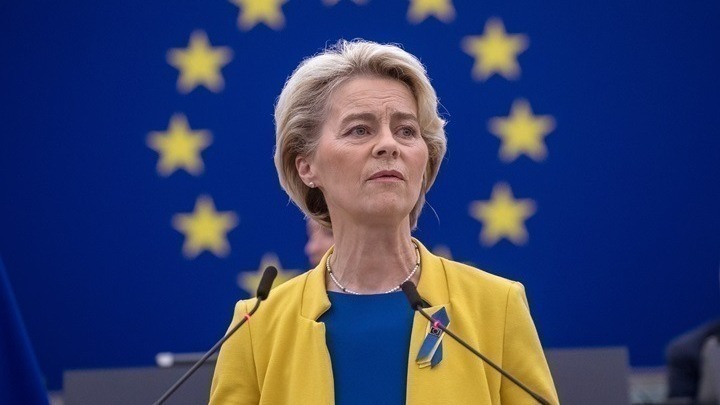“I honestly think this is the only way forward. And I really love the idea that Russia pays for the damage it causes in Ukraine. For me, there is no alternative to restitution,” said Danish Prime Minister Mette Frederiksen at a joint press conference in Stockholm. Her Finnish colleague Petteri Orpo also labeled the use of the blocked funds as “the only reasonable solution.”
None of the government leaders present in Sweden addressed the question of whether a joint European loan could also be an option for the future financing of Ukraine. Von der Leyen did not address this either. “This is a legally sound proposal. Not trivial, but legally sound,” said the Commission President about the use of the blocked funds.
Von der Leyen is working on a proposal to tap into the blocked funds of the Russian central bank to keep Ukraine financially afloat for the next two years. There is talk of a restitution of 140 billion euros that would be financed with Russian cash blocked at the Euroclear securities house in Brussels. Kiev would only have to repay that loan once Russia has made reparations to Ukraine.
Belgian Prime Minister Bart De Wever refused to agree to the idea at the recent European summit. He is particularly wary of the legal and financial implications for Belgium and is seeking clarity on the legal basis of the entire operation. The Prime Minister also demands guarantees that the other member states will cover all financial risks.
Ultimately, the final conclusions of the summit contained no reference to blocked Russian funds. The leaders asked the Commission to propose “options for financial support” as soon as possible, so that they could reach an agreement at their next summit in December.


